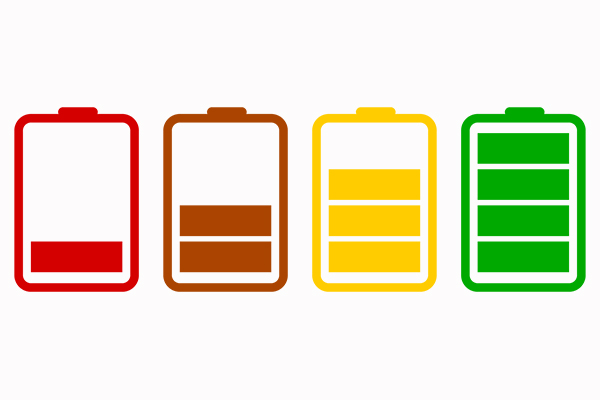How Smartphone Battery Levels Affect Hookup Decisions

By Justin Lehmiller
Imagine you’re looking for a hookup on an app like Tinder or Grindr. What factors would affect who you ultimately decide to meet up with?
Odds are that things like physical attraction, personality, and sexual compatibility come to mind first because those factors play an obvious and important role in our sexual decisions. That’s not all there is to it, though.
Other decision-making influences are more subtle, and we may not even consciously recognize the role they play in shaping our partner choices. One of these factors is time—and, in particular, feeling pressure to find a partner right now. If you feel as though your time is constrained, you might make different sexual decisions than you otherwise would. Indeed, this is precisely what a new study published in the journal Sexuality & Culture tells us [1].
In this study, a team of Canadian researchers studied time pressure by manipulating smartphone battery life during a sexually-charged interaction. Specifically, participants were given a screenshot featuring a short series of sexts. Participants were asked to imagine that they were taking part in this exchange and that it involved another person they had previously met through a dating app. The screenshot indicated that their phone’s battery life was either 5%, 20%, or 100%. In other words, some people were given the impression that battery death was imminent, whereas others had no battery concerns at all.
Participants were then asked to rate their likelihood of hooking up with the other person on a scale ranging extremely unlikely to extremely likely.
The participants for this study were 262 men who have sex with men, who were age 31 on average. Participants were recruited online, as well as through a college student subject pool.
So what happened?
It turned out that people in the 5% and 20% battery life conditions were more likely to say they’d hook up with the other person than those in the full battery condition. Put another way, when people perceived that they had limited time to make a hookup decision, they were more likely to go for it.
The researchers also found that certain types of people expressed more interest in hooking up regardless of their battery life. Specifically, people who had sensation-seeking personalities—meaning those who had a preference for thrilling and risky sexual activities in general—reported greater odds of hooking up across the board.
This study is limited in that only men who have sex with men were studied. It would therefore be important to replicate these findings in a sample with persons of different genders and sexualities before drawing sweeping conclusions. Likewise, this study examined what people said they would do in a hypothetical scenario, and we know that what people say they would do sometimes differs from what they actually do in real-life situations.
That said, these findings are consistent with a larger body of research on the role of scarcity in sexual and romantic attraction. For example, researchers have also found a “closing time effect” at bars. Basically, what this research shows is that as the night wears on and bars get closer to shutting down, perceptions of other patrons’ attractiveness increases [2]. In other words, as the number of options for hooking up goes down and the sense of pressure to find a hookup increases, people become a bit less selective.
What all of this tells us is that our hookup decisions are very much a function of the context in which they’re made, which means that we might make very different decisions in different situations. There is a caveat, though, which is that if you’re a sensation seeker, you’re probably more inclined to hook up regardless of the circumstances.
Reference:
----------------------------------------
Dr. Justin Lehmiller is an award winning educator and a prolific researcher and scholar. In addition to publishing articles in some of the leading journals on sex and relationships, he has written two textbooks and produces the popular blog Sex & Psychology. Dr. Lehmiller’s research addresses topics including casual sex, sexual fantasy, sexual health, and friends with benefits. His latest book is Tell Me What You Want: The Science of Sexual Desire and How It Can Help You Improve Your Sex Life. Follow him on Twitter @JustinLehmiller or facebook.com/psychologyofsex.
Support Kinsey
Love is more than an emotion. It is essential to our individual and collective well-being. Your support will help the Kinsey Institute advance research and education in the science of love and give a diverse field of researchers the resources they need to make new discoveries.
Pledge your support